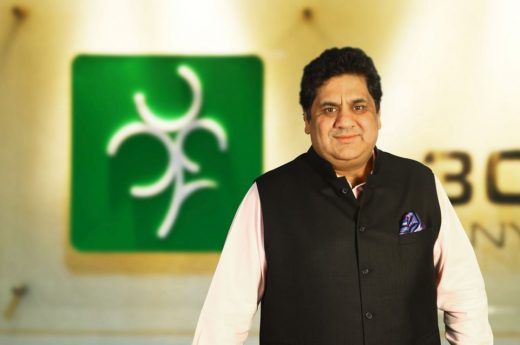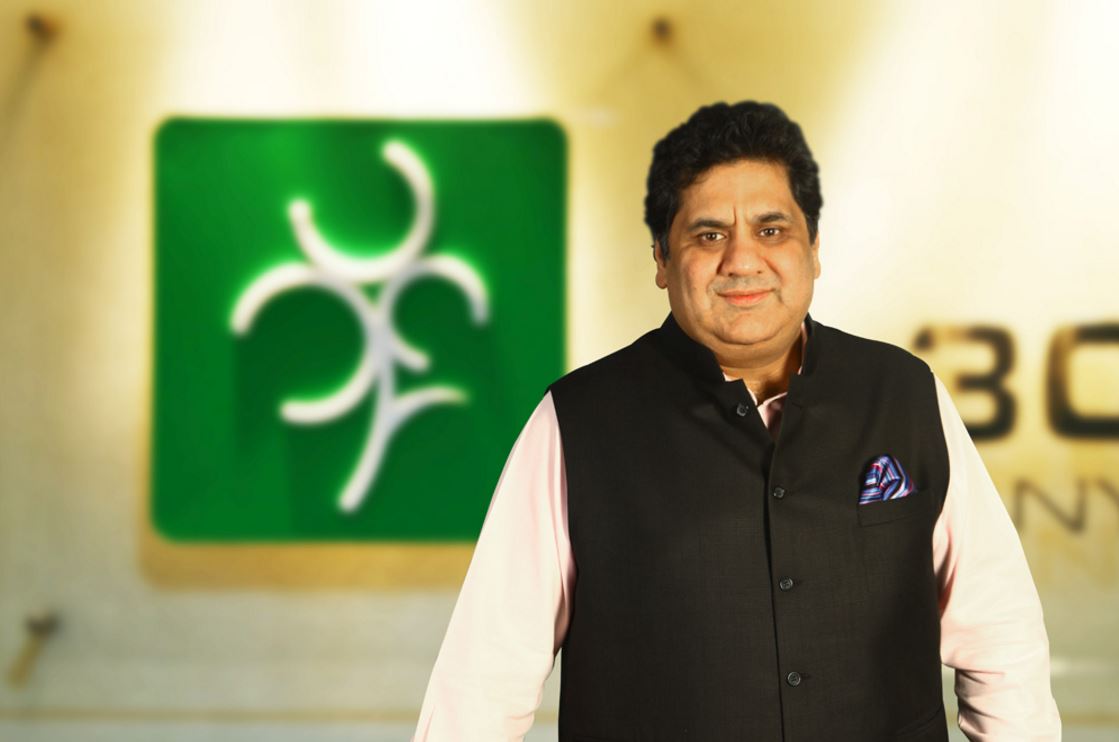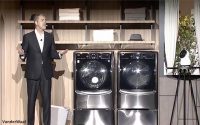The Business of Sustainability: 5 CEOs Leading the Change
April 29, 2016
Today, more and more business leaders, scholars and consultants use sustainability as a lens for strategy. Meet five chief executives–all members of Young Presidents’ Organization–who are focused on the triple-bottom-line: People, Profits, Planet.
Pioneering the Future of the Green Built World
 In 2006, Paul Belair led the purchase of Roth Bros., Inc.– a USD150 million industry-leading HVAC (heating, ventilation and air conditioning), roofing and energy services company – from a large publicly traded utility company.
In 2006, Paul Belair led the purchase of Roth Bros., Inc.– a USD150 million industry-leading HVAC (heating, ventilation and air conditioning), roofing and energy services company – from a large publicly traded utility company.
Realizing he could differentiate the company by positioning it as “green,” he rebranded, focusing on demand reduction through energy management systems, LED lighting and proactive maintenance of HVAC systems.
“I became aware of the growing importance retailers placed on projecting a green image to their environmentally conscious shoppers,” says Belair. “The results of the green branding exceeded my expectations. We experienced double digit annual revenue growth right through the recession and grew EBITDA (earnings before interest, taxes, depreciation and amortization) from USD3 to more than USD15 million.”
By focusing on the information gleaned from monitoring building automation systems (BAS), Roth was able to give its customers the most savings possible from their BAS investment.
Recently, Belair sold Roth to a large global company; with all this new time on his hands, he has been nurturing his green passions, branching out into disruptive green technologies, solar and wind.
“The energy sector is ripe for disruption within the next 10 years,” says Belair. “Solar is going to continue to exponentially improve its performance and many more buildings will be off the grid. With the Lab of Things (a flexible platform for experimental research that uses connected devices in homes and beyond) sensors will be in everything making buildings much more efficient. The exponential performance in solar, battery storage and the Lab of Things will change how much power we need and how it is supplied.”
Getting the Show on the Road
 The first alternative-fuel Las Vegas airport shuttle, Showtime Tours – the Las Vegas premier airport shuttle, sightseeing tour and charter-bus company – uses compressed natural gas (CNG) to drive its fleet of buses and vans.
The first alternative-fuel Las Vegas airport shuttle, Showtime Tours – the Las Vegas premier airport shuttle, sightseeing tour and charter-bus company – uses compressed natural gas (CNG) to drive its fleet of buses and vans.
“Alternative fuels are something we’ve always been interested in; long before the vehicle manufacturers,” says President and CEO Lisa de Marigny. “We started off using bio-diesel, but the mix of soy and diesel clogged up our engines so ultimately that didn’t work out. Eventually we ventured into propane but because of the heat in Vegas, it wasn’t an efficient fuel – it just burned itself off. When we were ready to implement CNG, we had to wait until the vehicle manufacturers could offer buses that weren’t so cost prohibitive.”
Additionally, Showtime had to wait for the city to approve proper infrastructure, an infrastructure that happened largely because of their needs. A CNG fuel producer came into town and built a station down the road from Showtime’s offices, allowing Showtime to operate using CNG, which is 100 percent domestically sourced and truly green.
“It’s the cleanest fuel we’ve ever used so it’s better for the environment,” says de Marigny, a YPO member since 2013. “Being based at an airport, it’s really important to be able to be part of the solution, and while our typical shuttle customer is not totally aware of the benefits, our team members – especially those stationed at terminal one, which is our busiest terminal, appreciate our promoting a clean environment.”
Going For Triple Wins – Personal, Profit and Planet
 Fred van Beuningen has more than 25 years experience of international management and board experience in industrial and service giants like Royal Dutch Shell, Kappa and Linde Gas AG.
Fred van Beuningen has more than 25 years experience of international management and board experience in industrial and service giants like Royal Dutch Shell, Kappa and Linde Gas AG.
As co‐founder of Business4Life Holding, he has focused on health and distributed energy based on innovative technologies and business models. For van Beuningen, being a member of YPO since 2003 mean a chance to grow as a leader as well as share his learnings with others.
“Business leadership should strive for triple wins: personal, profit and planet,” he says. “Moreover, I feel that sustainability is not only innovation’s next frontier, but also needs to be integrated into a businesses’ strategy. The creation of YPO’s Social Engagement Network provides a platform to have this discussion with members about becoming sustainability-driven leaders.”
He describes philanthropy as “one manifestation of directing capital to impact.”
“Today more and more business leaders, but also scholars and consultants, use sustainability as a lens for strategy,” says van Beuningen. “The discussions are more informed and strategic and the advent of impact investing has created another way to channel more patient capital to triple wins.”
Leading Environmentally Friendly Design
 Three C Universal Developers Pvt. Ltd. (3C Company) Director Vidur Bharadwaj is the only architect in the world to have designed three platinum and four gold-rated LEED (Leadership in Energy and Environmental Design) certified green buildings under the USGBC (United States Green Building Council) umbrella.
Three C Universal Developers Pvt. Ltd. (3C Company) Director Vidur Bharadwaj is the only architect in the world to have designed three platinum and four gold-rated LEED (Leadership in Energy and Environmental Design) certified green buildings under the USGBC (United States Green Building Council) umbrella.
Known as the “Green Man of Real Estate”, Bharadwaj’s 3C Company (the three Cs stand for create, care and conserve) is a pioneer of environmentally friendly green buildings for the residential, commercial and hospitality sectors in Delhi and the National Capital Region (NCR) – a metropolitan area that includes the territory of New Delhi as well as the surrounding states of Haryana, Uttar Pradesh and Rajasthan.
“I remember visiting old Indian monuments when I was a youth in school,” says Bharadwaj, a YPO member since 2011. “The sustainability aspect of those buildings always fascinated me. I was extremely sensitive toward the role of the sun, which plays an important part in the design of any building; sun being the source of light and energy. From the very beginning, I have made sure that my buildings were sustainable and designed for a greener future.”
As architects, Bharadwaj and The 3C Company help promote the green building industry through design and debate competitions that focus on improving every day basic practices by inculcating green culture.
“Being green is all about creating a balance between the socio, economic and environmental aspects of building design,” he says. “It is a momentum that does not stop at delivery of the project but is carried on further by the end users.”
Jumpstarting Demand for Sustainable Aviation Fuels
 As head of Shell’s Aviation operations in Europe in the 1990s, Petra Koselka was responsible for selling fuels and lubricants to European airlines as well as storage and refueling operations at approximately 200 airports across 19 countries. This adds up to fueling one plane, every 25 seconds.
As head of Shell’s Aviation operations in Europe in the 1990s, Petra Koselka was responsible for selling fuels and lubricants to European airlines as well as storage and refueling operations at approximately 200 airports across 19 countries. This adds up to fueling one plane, every 25 seconds.
Her fascination with this space and its challenges, led her to her current role as senior advisor, aviation for Carbon War Room – a global, independent, nonprofit (one of the founding members of which is Sir Richard Branson) with the mission of accelerating the adoption of business solutions that reduce carbon emissions and advance the low-carbon economy.
“The aviation sector has set themselves the target of achieving carbon-neutral growth by 2020,” says Koselka, a YPO member in Amsterdam since 2009. “Excellent progress has been, and is still being made, in terms of operations and infrastructure, but in terms of uptake of sustainable aviation fuels, this is virtually zero. At Carbon War Room, we believe that an intervention is needed to jumpstart significant demand for sustainable aviation fuels (SAF). I believe that airports can fulfill a key role as natural aggregators of demand.”
The idea is for airports to use only SAF at their locations, and for all airlines to be fueled with it. This way, airports will realize enough demand that a local or regional dedicated biofuels supply chain can be financed, contributing to economic development and jobs in the region. Since airports already interact with airlines, fuel operators, and local and national governments, they can use their position as natural orchestrators to move the needle in SAF uptake.
“This is a new role for an airport and therefore requires a paradigm shift in thinking,” says Koselka. “For the model to work, we believe airlines should not be required to pay the price premium for SAF but that other sources (like parking revenue increases or itemized ticket surcharges) should be identified to cover the delta. Our discussions with airports are progressing well and we have found that those with truly visionary CEOs and top management really ‘get’ the opportunity. Only one airport can be the first globally, so we aim to have that be a reality in 2016.”
This article first published on Ignite, the official blog of YPO.
Business & Finance Articles on Business 2 Community
(31)














